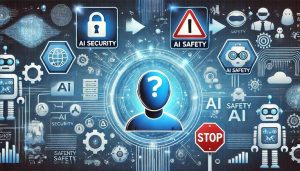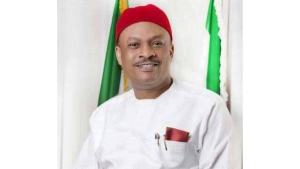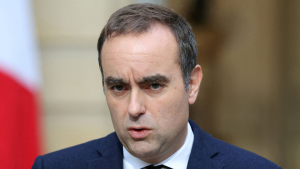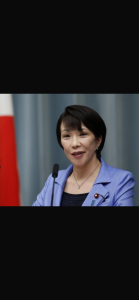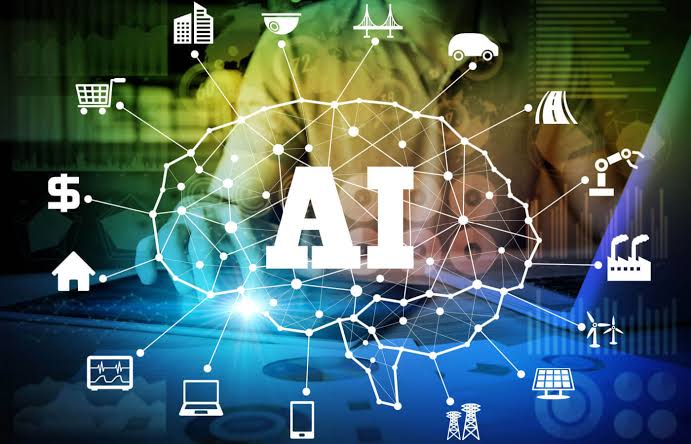
By Abdurrasheed Isah Abubakar
The rise of artificial intelligence is no longer a futuristic headline from Silicon Valley. It is unfolding in real time across Nigeria, Africa, and the wider world.
From the smartphones in our hands to the algorithms that filter job applications, predict creditworthiness, or determine what news we see online, AI has already woven itself into the fabric of daily life.
In Lagos, start-ups are experimenting with AI-driven financial services. In Abuja, regulators are drafting guidelines through the National Information Technology Development Agency (NITDA).
In healthcare, AI-assisted diagnostic tools are being piloted in Nigerian hospitals to detect diseases like tuberculosis faster. In education, machine learning platforms promise to tailor lessons for children in rural classrooms.
At first glance, this sounds like the dawn of a new era of opportunity. Yet beneath the promise lies a pressing concern: what happens when machines make decisions without meaningful human oversight? Who will be held accountable when the systems fail or, worse, when they quietly reinforce inequalities that already exist in our society?
The truth is that AI is not neutral. It is trained on data, and data reflects human choices, behaviors, and prejudices. When such biases are baked into algorithms, the result can be discrimination at scale. Consider the simple example of recruitment platforms.
In developed economies, automated hiring systems have been caught downgrading female candidates for technical roles because the training data reflected decades of male-dominated hiring patterns.
If Nigeria imports such technologies without rigorous oversight, how many qualified women or minority groups might silently be denied opportunities? Our young graduates, already facing one of the toughest job markets in the world, could find themselves excluded not because of ability but because of hidden flaws in code.
The risk is that the algorithm becomes an invisible gatekeeper, making decisions that no one can challenge because the logic is locked inside a “black box.”
This problem is not hypothetical. Around the world, AI-driven predictive policing systems have reinforced racial and ethnic biases. In healthcare, AI diagnostic tools have been less accurate for African populations because they were trained on datasets dominated by Western patients.
For Nigeria, where health inequalities already run deep, such oversight gaps could mean the difference between life and death. Imagine a rural clinic in Kano adopting an AI tool that misdiagnoses patients because it was never tested on African data.
Who bears the responsibility for the harm—the foreign developer, the Nigerian government that approved it, or the local health worker who trusted it? Without a framework of human accountability, the answer becomes dangerously unclear.
The absence of oversight does not just magnify bias; it also erodes responsibility. When harm occurs, blame is often shifted. Engineers argue the system worked as designed.
Companies claim they only provided the technology. Policymakers insist they lacked the expertise to foresee the risks. In this vacuum of accountability, citizens are left unprotected. Nigeria cannot afford such moral laziness.
Our history is already littered with examples of technologies deployed without safeguards—from oil extraction that devastated the Niger Delta to financial innovations that fueled corruption. If we allow AI to follow the same path, we risk deepening the very problems it promises to solve.
Nigeria has begun to recognize this challenge. NITDA recently released draft guidelines on AI, signaling a commitment to regulate. The Central Bank of Nigeria (CBN) has been cautious with digital lending platforms that misuse data.
The Nigeria Data Protection Act of 2023 is a step toward safeguarding citizens’ privacy. But laws alone are not enough. Enforcement in Nigeria has always been the stumbling block. How many times have we seen beautifully crafted policies gather dust while exploitation continues on the ground? AI oversight will require more than paper regulations.
It will demand strong institutions, skilled regulators, and an engaged public willing to demand accountability. It will require partnerships between government, academia, civil society, and the private sector to ensure that AI serves Nigerians rather than exploits them.
There is also a global dimension to this debate. Africa has often been treated as a testing ground for technologies that richer countries would hesitate to deploy at home.
From medical trials to social media experiments, our continent has seen innovations arrive without consent or safeguards. If oversight is not insisted upon, AI could become yet another arena where Africans are treated as subjects rather than citizens.
Imagine a future where global corporations deploy untested AI financial systems in Nigerian markets, profiting from our data while exposing citizens to risks of fraud, exclusion, or digital surveillance. This is not paranoia; it is a lesson from history. We must not allow Africa to be the laboratory of unsafe AI.
Human oversight is not about slowing innovation or rejecting technology. It is about steering it toward values that matter: fairness, transparency, justice, and human dignity.
It means keeping a human being in the loop wherever AI systems make decisions that affect people’s lives. In finance, this could mean requiring banks and fintech companies to explain how automated credit scoring works and allowing applicants to challenge unfair denials.
In healthcare, it means ensuring that AI diagnostic tools are tested on Nigerian populations before being deployed. In education, it means making sure AI learning platforms respect cultural diversity rather than erasing it.
Oversight is about building trust—because without trust, even the most advanced technology will be resisted by the people it claims to serve.
Nigeria stands at a crossroads. Our population is young, innovative, and eager to embrace technology. But we are also vulnerable to being left behind in the global AI race if we fail to set standards.
Countries like the United States, the United Kingdom, and members of the European Union are already developing comprehensive AI regulations. China is embedding AI deeply into state governance.
If Nigeria and Africa remain passive, we will end up as consumers of foreign systems that neither understand nor respect our realities. Worse, we may find ourselves locked into digital dependencies where our economies, governments, and even elections are shaped by technologies built elsewhere.
This is where leadership matters. The Nigerian government must go beyond token policies and invest in building real capacity for AI governance.
NITDA must be empowered not only to draft guidelines but to enforce them with teeth. The CBN must extend its cautious approach in fintech to ensure that AI-driven financial systems do not exploit vulnerable Nigerians.
Universities must be supported to train ethicists, lawyers, and technologists who can understand and monitor AI systems. Civil society must be vigilant, raising questions whenever AI threatens to undermine human rights. And the media must shine a spotlight on abuses, ensuring that the public debate does not lag behind the pace of innovation.
Oversight must also be cultural. Nigeria cannot simply copy and paste Western ethical frameworks, because our challenges are unique. Issues of corruption, weak infrastructure, and low trust in institutions shape how AI will be deployed here.
We need an African philosophy of AI oversight—one that emphasizes community, solidarity, and the dignity of the individual. For instance, African traditions of communal decision-making can inspire participatory approaches to AI governance, ensuring that citizens have a voice in how technologies are used.
This perspective can enrich the global conversation, showing that oversight is not only about technical fixes but also about values rooted in culture.
The race for AI is moving faster than the ability of most governments to regulate it. But speed must not become an excuse for recklessness. The temptation to prioritize profit and efficiency often overshadows the need for safety and fairness, yet history shows that unchecked technologies eventually harm those they were meant to help.
The oil boom promised prosperity but delivered pollution and inequality. The rise of mobile money promised financial inclusion but also unleashed a wave of digital fraud. AI must not become another cautionary tale in Nigeria’s development story.
The stakes are too high to ignore. A badly designed AI in our electoral system could undermine democracy. An unregulated AI-driven financial platform could wipe out savings for millions.
An opaque AI healthcare tool could misdiagnose patients and cost lives. These are not science fiction scenarios; they are foreseeable risks if oversight is absent. The question is not whether AI will shape Nigeria’s future—it already is. The question is whether we will shape it with wisdom, foresight, and humanity.
At its core, the debate is about control. Do we want a future where decisions about Nigerian lives are made by machines designed in foreign boardrooms, or one where Nigerians themselves set the rules? AI may be the engine of tomorrow’s progress, but without humanity in the loop, it risks becoming a driver without a conscience.
For Nigeria and Africa, where human dignity has too often been trampled by weak governance and global inequality, oversight is not just a policy choice—it is a moral duty. The values we embed today will define the world that our children inherit.
We cannot claim ignorance. The lessons are visible all around us. Facebook’s algorithms contributed to political unrest in countries across Africa because there was no oversight. Fintech apps have exploited Nigerians with predatory loans because regulation lagged.
If this is what happens with relatively simple digital tools, what will happen when more powerful AI systems arrive? The call for oversight is not a call for fear; it is a call for responsibility. It is about ensuring that technology remains accountable to the people it serves.
Nigeria must take this seriously. Our leaders must recognize that the future of AI is not only about coding and innovation but about governance and ethics. NITDA’s guidelines must evolve into enforceable laws.
The CBN must create standards for algorithmic decision-making in finance. Our lawmakers must engage with global debates to ensure Africa is not left voiceless in shaping international norms. Most importantly, citizens must insist that technology serves them, not the other way around.
The dream of AI is real. It can help farmers predict weather, doctors save lives, students learn faster, and businesses grow. But without humanity in the loop, it can also entrench inequality, erode democracy, and strip people of dignity.
Oversight is not about rejecting the future; it is about protecting it. Nigeria has the chance to show that even in a world racing toward automation, human values remain the compass. The world is watching. Our children are waiting. Oversight matters now more than ever.

